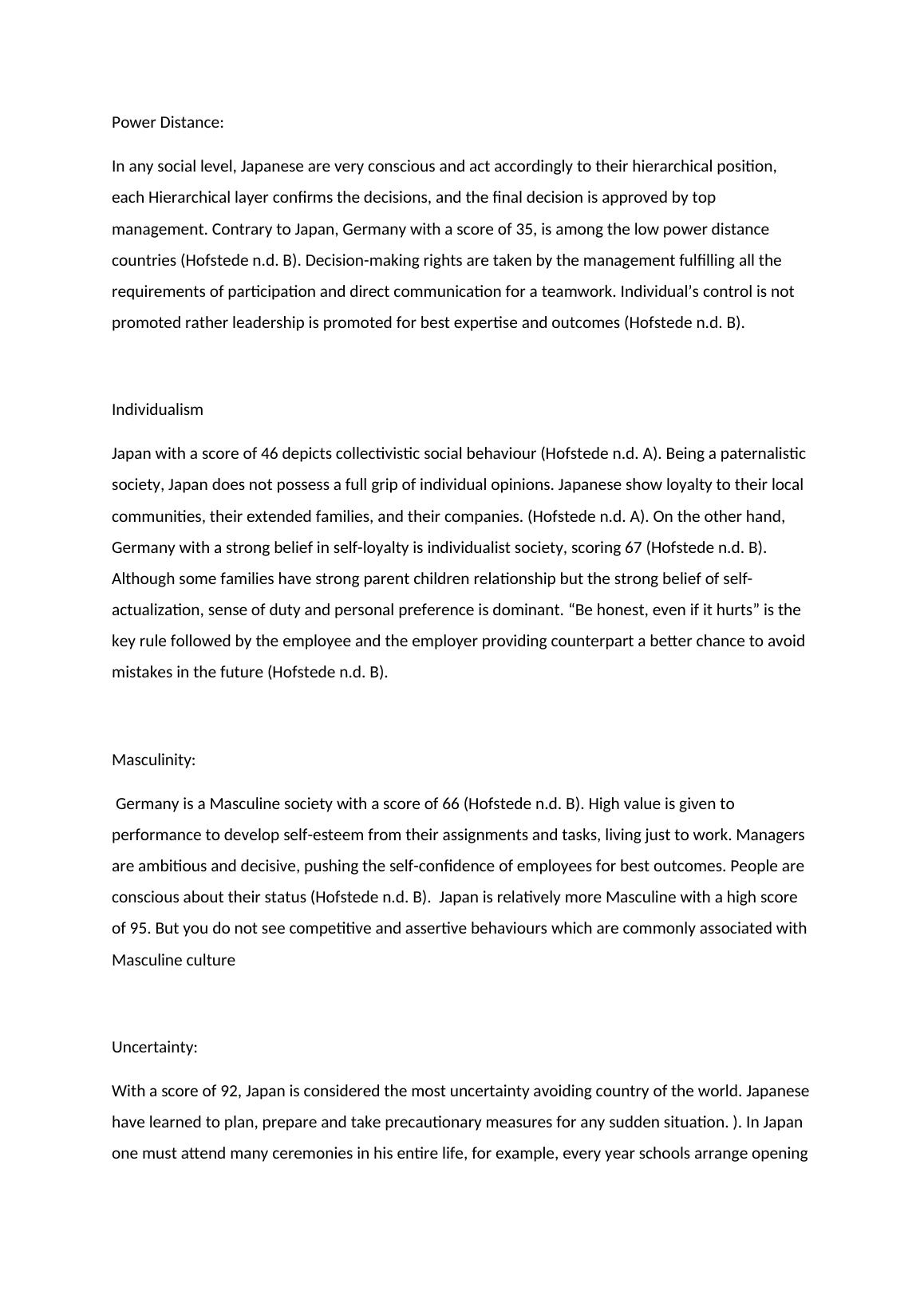Cultural Comparison between Japan and Germany based on Hofstede's Dimensions
Added on 2020-12-07
2 Pages691 Words131 Views
End of preview
Want to access all the pages? Upload your documents or become a member.
Culture Analysis of UK and its Impact on GCC
|11
|1118
|417
Hofstede: Cultural Dimensions of Japan
|4
|773
|48
Report on International Management
|9
|1774
|33
Management in Global Business Environment
|5
|985
|227
Understanding and Managing Organisational Culture PDF
|12
|3428
|33
Cross Culture - INPEX: An Analysis of Cultural Differences between Japan and Australia
|13
|1210
|109

